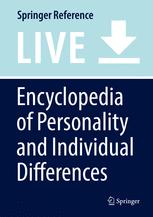But it isn't just the 'FAILURE' to meet expectations that is the crux of the matter, but the emotional implications and the origin of those implications that I am trying to stress. Why do we fear failure and how did we acquire a yardstick that is essentially useless in curing the problem at an unconscious feeling level. It is because we were taught that to fail is to be worthless when the whole way children mature emotionally is based on an inborn will to learn competence that the fear of failure destroys.
I don't disagree with this, nor is it inconsistent with what I already said.
I understand this. I have frequently said that there may be a branch of depression based on genetic biochemical traits. You have to remember that knowing we hate ourselves is the very last thing anybody wants to realize and the genetics thingi always comes up when the universality of self hate is mentioned. I would advise a minimum of focus in that area as I suspect that subject is mostly brought up to avoid self reflection. I myself was warned about this by my teacher in my early twenties and that was a some time ago when I was a biochemistry major, a field I abandoned to get a job to pay for therapy. I know the biochemical argument pretty well, I think.
No one who has studied and researched depression would refer to biology as a "branch of depression." While not all depression is
hereditary, it all has a biological component. Studies of depressed people show they have smaller hypocampuses and lower serotonin levels than non-depressed people. What causes that may vary from person to person. It may be hereditary in some cases, in others it could be a predisposition caused by genetic drift. In still others it could even be caused by exposure to certain toxins. May be influenced by what we eat. It's very complex. But biology is never out of the equation, because those feelings are directly caused by neurochemical imbalances.
We have not all had the same experiences as children but there is one commonality we all share and that is having been verbally put down. Children can't survive a constant awareness of the pain that creates. It is pushed out of conscious awareness hidden behind a wall of ego, bravado, and pretense.
I think you are rejecting variations in experience much like you are rejecting contributions from biology. It's neither nature nor nurture with you. It's more like a pre-determined psychodrama that we all experience. Which is why I made an analogy with Freud in another post. Freud had his own psychodramas (i.e. the Oedipus Complex) that supposedly everyone goes through.
As for your psychodrama, the fact is, lots of things can be considered "put downs." But whatever they are, there are vast differences in how much, how often, and all the other particulars of this experience, from one person to the next. If this is such a pivotal experience as you say, then it would make sense that large variances in the experience will produce very disparate outcomes.
The only way a person can actually know they hate themselves is to do the very very difficult work of getting in touch with ones feelings, feelings we would rather die sometimes than face. The only suggestions I can offer to imply that truth is via what about our natures it would illuminate that is true. In my opinion it explains everything in the world we see including our left handed, unconscious slide toward extinction. It isn't very fair, then, that I ask you to tell me what kind of hate it is you see that isn't the product of self hate but I will.
Perhaps you refer to what I would categorize as the Wrath of God, a subject I prefer to avoid as psychologically dangerous.
I don't know what you mean by "Wrath of God" in this context. I purposefully didn't give you an example because I wanted you to test your own hypothesis that "
all hate is self-hate." So consider a hypothetical. Say someone murders your spouse, child, parent, sibling or best friend right in front of you, and you respond with hatred and rage, then kill that person, even though it wasn't in self-defense. Think carefully about this and explain how the hate which produced your violent response is self-hate turned outwards.
I think it's natural, possibly even instinctive, to hate those who take away something, or more likely, someone, who is important to them. Chimpanzees, who are both social and tribal (surprise surprise that our genetically closest living relatives are tribalistic!) are more likely to become aggressive and hostile if you kill a member of their tribe than if you kill a chimp who is not a member of their tribe. Pretty sure chimps were never put down as children, and are not afflicted with self-hate.
Hate in a political context, where you hate someone for the
type of person they are (.e.g liberal, conservative, black, white, etc.) where you don't even know the person in question, is largely self-hate. But hate towards those who personally wrong you, may depend on the nature of the wrong, but I'm not convinced all that can be put down to self-hate.





